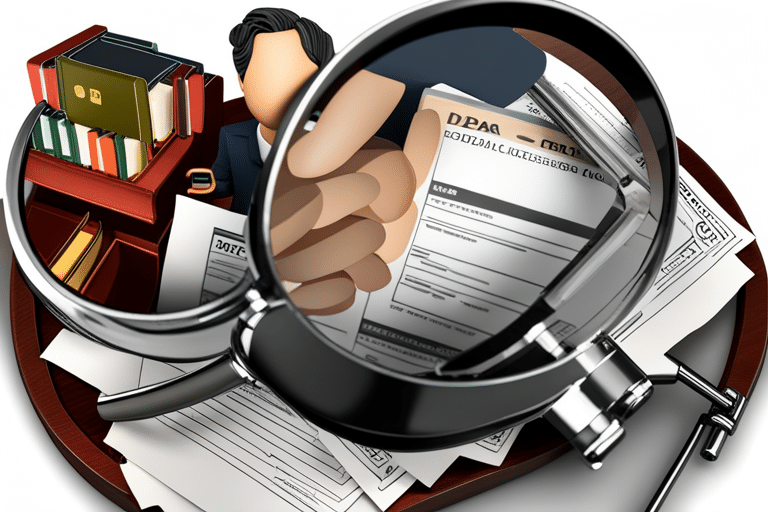You’ve got credit card debt. It’s a bummer, but don’t worry! We’re here to help you navigate the murky waters of your rights and legal protections.
The Fair Debt Collection Practices Act (FDCPA) is your secret weapon against pesky collectors. And hey, don’t forget to verify that debt!
We’ll also explore options like debt settlement and bankruptcy, because sometimes you need a fresh start.
So buckle up and get ready to master this whole credit card debt thing!
Key Takeaways
- The Fair Debt Collection Practices Act (FDCPA) provides legal protections for consumers facing credit card debt.
- Consumers have the right to request debt verification and proof of the debt from the creditor.
- Ignoring the debt verification process can lead to legal consequences, including lawsuits and wage garnishment.
- To protect against false debts and harassment, individuals should review debt validation notices, be cautious of scams, and know their consumer rights.
Understanding the Fair Debt Collection Practices Act (FDCPA

You should know that the Fair Debt Collection Practices Act (FDCPA) is a federal law that protects you from unfair practices when dealing with debt collectors. And let me tell you, it’s like having your very own superhero to fight against those pesky debt collection villains.
With the FDCPA on your side, you can rest easy knowing that you have rights and legal protections against debt collection harassment.
No more constant phone calls or threatening letters! The FDCPA says enough is enough. It sets guidelines for how debt collectors can communicate with you and prohibits them from using abusive language or engaging in deceptive practices. Your consumer rights are important, after all!
The Importance of Verifying Your Debt

Hey there, smart cookie! Let’s dive into the wild world of debt verification, shall we?
Picture this: you’re minding your own business when suddenly a letter arrives claiming you owe a boatload of money. But hold on just a second! Did they really check if that debt is legit?
We’ll talk about the nitty-gritty of the verification process, the legal consequences if they messed up, and how you can protect yourself from those sneaky false debts.
Buckle up, because this rollercoaster ride is gonna be full of surprises!
Debt Verification Process
Once you’ve requested debt verification, it’s important to understand the process and your rights. But fear not, my dear debt-battler! The debt verification process is like a dance between you and the creditors.
You send them a letter saying ‘Prove it!’ and they have to provide evidence that you owe the money. It’s like playing detective but without the cool hat.
Now, there are some debt validation requirements they need to meet: they must show proof that they own the debt, provide details of the original creditor, and present any relevant documents. So put on your Sherlock Holmes cap and get ready to scrutinize their evidence!
Once you’ve gathered all this information, you’ll be well-prepared for the legal implications of verification lurking just around the corner.
Legal Implications of Verification
Now that you’ve received verification of the debt, it’s crucial to be aware of the potential legal consequences. But fear not, my dear friend! We’re here to guide you through this whimsical journey of credit card debt.
So put on your detective hat and let’s dive into the world of legal requirements!
-
Lawsuit Land: If you ignore the verification process, you might find yourself in court faster than a cheetah chasing its prey. So don’t skip this step!
-
Judgment Junction: If the court rules against you, they can slap a judgment on your lovely assets. Say goodbye to your precious possessions!
-
Wage Garnishing Galore: Get ready for a magical experience where money mysteriously disappears from your paycheck each month to pay off your debt.
-
Credit Consequences: Your credit score may take a hit if things go south in Legalville. It’s like trying to climb Mount Everest with an anchor tied to your back.
Protecting Against False Debts
If you receive a debt validation notice, it’s important to thoroughly review the information provided before taking any further action. False debt prevention is crucial in protecting yourself against common debt collection scams. These scams can be sneaky and deceptive, but with a little knowledge, you can outsmart them like a masterful magician waving their wand.
Take a look at this whimsical table that showcases some common debt collection scams and how to prevent falling victim to them:
| Scam | Prevention |
|---|---|
| Phishing Emails | Be cautious of suspicious links and attachments |
| Impersonating Law Enforcement | Verify identity before providing any information |
| Threats of Arrest or Lawsuits | Know your rights and consult with an attorney |
| Fake Debt Collectors | Request written proof of the debt |
| Identity Theft | Monitor your credit report regularly |
Exploring Debt Settlement Options

Exploring debt settlement options can help you negotiate with creditors to reduce the amount of credit card debt you owe. It’s like being a master negotiator, but instead of haggling over the price of a rug in a crowded bazaar, you’re haggling over your mountain of debt.
Here are four steps to guide you through the whimsical world of debt settlement:
-
Assess your financial situation: Take a good hard look at your debts, income, and expenses. Figure out how much you can realistically afford to pay.
-
Contact your creditors: Reach out to them and explain your situation. Negotiate for lower interest rates or even a reduced lump sum payment.
-
Get everything in writing: Make sure all agreements are documented and signed by both parties involved. You don’t want any surprises later on.
-
Stick to your plan: Once an agreement is reached, make sure you follow through on your end of the bargain.
As you navigate these negotiations with finesse and charm, it’s important to also know how to handle those pesky debt collection calls and letters that may come your way…
How to Handle Debt Collection Calls and Letters

Handling debt collection calls and letters can be challenging, but fear not! You have the power to turn these situations into a win.
First off, take a deep breath and remember that you are in control. Now, let’s talk strategy.
When it comes to debt consolidation options, do your research and find the best solution for you.
Next, when negotiating repayment plans with collectors, approach it like a skilled negotiator. Be confident, yet polite (but feel free to throw in some witty banter if you’re feeling saucy). Remember, you hold the cards here.
Lastly, stay organized by keeping records of all communication and payments made.
With these tips up your sleeve, those pesky collection calls will soon become a thing of the past!
Know Your Rights: Dealing With Debt Collectors

Dealing with debt collectors can be intimidating, but it’s important to know what rights you have in these situations. So, let’s dive into the magical world of dealing with debt collectors! Here are four things you should know:
-
They can’t harass you: Debt collectors may be persistent, but they’re not allowed to cross the line into harassment. No need for a magic spell to make them stop calling at all hours!
-
You can take legal action: If a debt collector violates your rights and won’t quit pestering you, don’t worry! You have the power to take legal action against them. Abracadabra – they’ll think twice before messing with you again!
-
Keep records: It’s like keeping a detailed potion recipe book! Document every interaction with debt collectors, including dates, times, and any outrageous claims they make. It’ll come in handy if you need evidence later.
-
Seek help if needed: If the situation becomes too overwhelming or complex, don’t hesitate to seek professional assistance from an attorney or a credit counselor. They can guide you through this enchanted maze of debt collection.
Understanding the Statute of Limitations for Credit Card Debt

The statute of limitations determines the time frame in which a creditor can legally pursue unpaid debts. But hey, don’t panic just yet! Let’s talk about what this means for you and your credit card debt settlement options.
Now, imagine yourself sitting at a fancy table with two columns and three rows. On one side, we have the ‘Statute of Limitations Consequences’ column, and on the other side, we have the ‘Credit Card Debt Settlement Options’ column. It’s like a game show where you get to choose your fate!
In the Statute of Limitations Consequences column, we have things like expired legal action, no more threats from creditors, and potential removal from your credit report after a certain period. Phew! That sounds pretty great so far.
On the Credit Card Debt Settlement Options side, we’ve got negotiation with creditors for lower payments or even debt forgiveness if you play your cards right (pun intended), debt consolidation to simplify your payments, or maybe even bankruptcy as a last resort.
Exploring Bankruptcy as a Last Resort

So, you’ve learned about the statute of limitations for credit card debt, and now we’re diving into the world of bankruptcy as a last resort. Don’t worry, we’ll make this exploration as lighthearted as possible!
-
Bankruptcy Alternatives: Before you start singing ‘I Will Survive,’ consider other options like negotiating with your creditors or seeking credit counseling. It’s like trying to untangle headphone wires – there’s always a way out!
-
Debt Consolidation Options: Think of debt consolidation as the superhero cape that swoops in to save the day. This involves combining all your debts into one manageable payment plan. It’s like turning chaos into order faster than a magician pulls a rabbit out of a hat.
-
Chapter 7 Bankruptcy: When it feels like life is throwing lemons at you, Chapter 7 bankruptcy can turn those lemons into lemonade (or maybe even margaritas). This option allows you to wipe out most of your debts and start fresh.
-
Chapter 13 Bankruptcy: If you prefer an extended dance remix instead of wiping everything clean, Chapter 13 bankruptcy might be your jam! It lets you create a repayment plan over three to five years while keeping most assets intact.
Steps to Rebuilding Your Credit After Settling Credit Card Debt

So, you’ve settled your credit card debt and now it’s time to rebuild that credit score of yours. Don’t worry, we’ve got some strategies up our sleeve that will have your score soaring like a majestic eagle in no time!
But be warned, the impact on your credit score won’t happen overnight, so grab some popcorn and settle in for the long-haul.
Oh, and let’s not forget about those long-term financial implications – they’re kind of a big deal too.
But hey, with a little patience and perseverance, you’ll be back on track to financial success in no time!
Credit Rebuilding Strategies
Start by creating a budget that includes a plan for paying off your credit card debt and rebuilding your credit. It’s time to get serious about those pesky debts and show them who’s boss!
Here are four whimsical strategies to help you rebuild your credit:
-
Get cozy with credit counseling services: These folks are like the fairy godparents of financial advice, guiding you through the maze of debt and helping you come up with a solid plan.
-
Embrace the power of positive payment history: Make those payments on time, every time, and watch your credit score soar like a majestic unicorn!
-
Be mindful of your credit utilization: Don’t go overboard with those shiny plastic cards! Keep your balances low and show lenders that you’re responsible.
-
Patience is key: Rebuilding takes time, my friend. So sit back, relax, and let the magic happen as you watch your credit score rise from the ashes!
Impact on Credit Score
It’s important to understand how different factors can impact your credit score. Two key factors to consider are payment history and credit utilization. Let’s break it down in a more entertaining way.
Picture this: you’re sitting at a table with three columns and four rows, like a game of tic-tac-toe but without the Xs and Os. In the first column, we have payment history – did you pay your bills on time or were you fashionably late? In the second column, we have credit utilization – did you max out all your cards like a kid in a candy store or show some self-control?
And finally, in the third column, we have the impact on your credit score. This is where things get serious. Your goal is to fill those rows with green checks instead of red crosses. Because rebuilding credit is like playing a strategic game – one wrong move and it could take ages to recover.
Now that you’ve mastered this whimsical little table of credit knowledge, let’s dive deeper into how credit counseling can help you navigate these treacherous waters!
Long-Term Financial Implications
Now let’s explore how these financial decisions can have long-term implications for you. When it comes to managing your debt, it’s important to be strategic and avoid any unnecessary pitfalls. Here are a few tips to help you navigate the treacherous waters of long-term financial consequences:
-
Create a budget: It may not sound exciting, but trust me, creating a budget is like having your own personal financial GPS. It helps you stay on track and avoid overspending.
-
Pay more than the minimum: Think of it as giving your debt a swift kick in the pants. By paying more than the minimum amount due each month, you’ll chip away at that mountain of debt faster than you can say ‘abracadabra.’
-
Consider consolidation: Consolidating your debts into one manageable payment can make life so much easier. Plus, it feels pretty darn satisfying when you see those balances shrinking.
-
Seek professional help if needed: Sometimes we all need a little extra guidance when it comes to managing our finances. Don’t be afraid to reach out to a financial planner or credit counselor who can offer expert advice tailored specifically for your situation.
Frequently Asked Questions
Can I Be Arrested for Not Paying My Credit Card Debt?
Don’t panic! No need to worry about being arrested for not paying your credit card debt. While there may be legal consequences, jail time isn’t one of them. But let’s dive into the details…
What Is the Difference Between a Debt Settlement Company and a Debt Consolidation Company?
When it comes to dealing with credit card debt, understanding the difference between a debt settlement company and a debt consolidation company is key. Let’s dive in and explore the pros and cons, as well as their impact on your credit score.
Can My Wages Be Garnished if I Have Credit Card Debt?
Yes, your wages can be garnished if you have credit card debt. But don’t panic! There are legal protections in place to prevent excessive garnishment. Know your rights and seek help if needed. Keep those hard-earned dollars in your pocket!
How Long Does It Take for a Debt to Be Considered “Time-Barred” Under the Statute of Limitations?
So, you’re wondering how long it takes for a debt to be considered ‘time-barred’ under the statute of limitations? Well, let’s dive in! We’ll also explore the consequences of not paying credit card debt on time and how the statute of limitations varies for different types of debts. Get ready for some legal fun!
Will Settling My Credit Card Debt Have a Negative Impact on My Credit Score?
Settling credit card debt can hurt your credit score. It’s like getting a bad haircut before a date. But don’t worry! With time, patience, and responsible financial habits, you can grow that credit score back to its fabulous self.
Conclusion
Congratulations! You’ve made it to the end of this wild credit card debt adventure. Now, armed with knowledge about your rights and legal protections, you can conquer any debt collector like a superhero wielding a mighty shield.
Remember, verifying your debt is crucial, and exploring settlement options might just be the magic potion you need. Handling those pesky calls and letters? Piece of cake!
And if all else fails, bankruptcy could be your trusty sidekick. So go forth, rebuild your credit like a phoenix rising from the ashes, and soar towards financial freedom!

